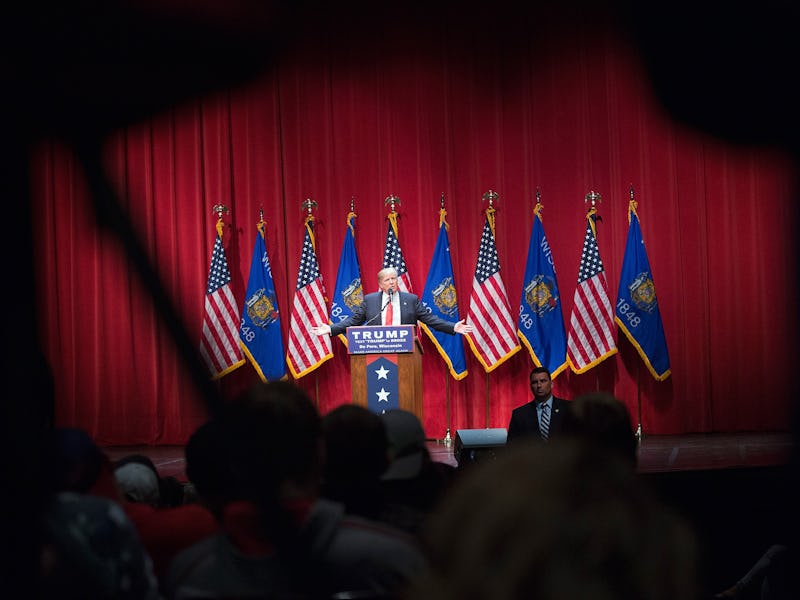Donald Trump, the Illuminati: Cognitive Psychology Explains Conspiracy Theories
People with little control over their lives also buy into conspiracy theories.

To cope with life’s scarier propositions, we sometimes try to explain the fear away: the elite are Illuminati, subduing the common people and working to establish a New World Order. They might also be Satanists, or they also may try to kill Donald Trump because he used to be a senior Illuminati member who’s gone rogue.
These thoughts, to some people, are comforting, because humans have a psychological need to make sense of the world, and yet the world is erratic. Studies show that those who feel the least in control of their lives are the people most likely to believe in conspiracy theories.
In a 2015 study published in Applied Cognitive Psychology, researchers Jan-Willem Van Prooijen and Michele Acker found that while conspiracy theories widely vary, a belief in them is grounded in the same underlying psychological process: A need for control. “In a large-scale U.S. sample,” researchers write that they found interpersonal mistrust and paranoia drives this desire. There is a snowball effect, too: nobody believes in just one conspiracy theory.
Researchers from Northwestern University and the University of Texas, Austin came to the same conclusion in 2008. They evaluated subjects in a series of experiments that evaluated their sense of control, if they had superstitions, and if they saw illusory patterns. In the pattern experiment, subjects were asked to look at “snowy” pictures — in reality half of the pictures were just patterns of random dots, while the other were images against a grainy background.
The researchers found that while 95 percent of the subjects were able to correctly identify the hidden images, those who most felt like they didn’t have control in their lives also thought saw images in 43 percent of the pictures that were just dots. Just like people who feel like they lack control in the world see false patterns in world events, these people saw false patterns in pictures.
“The less control people have over their lives, the more likely they are to try and regain control through mental gymnastics,” said co-author Adam Galinsky to Texas Enterprise. “Feelings of control are so important to people that a lack of control is inherently threatening. While some misperceptions can be bad or lead one astray, they’re extremely common and most likely a deep and enduring psychological need.”
A need for control is a feeling that exists at all times, but academics have noticed that major societal events make this need greater. In a another paper, Prooijen writes that perceived morality directly affects whether or not a person is going to think an event is a result of a conspiracy. There’s a reason why people think terrible events are caused by conspiracy, and don’t take note of things that go well: If something horribly immoral happens, there has to be a reason to explain why.
A Donald Trump supporter.
This is why, when he’s not working on exposing the Illuminati, Trump is so good at using conspiracy theories to get people to support him. It’s a consistent ploy: All the Muslims of San Bernardino knew about the December attack and said nothing; thousands of Muslims gathered to cheer after 9/11. Isn’t it strange that Supreme Court Justice Antonin Scalia was found with a pillow on his face, Trump asks, isn’t it bizarre that there just happens to be a video connecting a Trump protester to ISIS? His supporters aren’t Neo-Nazis, they actually support Bernie Sanders. The fact that these have all proven to be definitively not true doesn’t matter.
Trump knows conspiracy theories are the best way to tap into an ever growing populous: Older white people who feel that they’ve lost agency in the world. Nothing makes you embrace conspiracy theories quite like realizing you’re not entitled to feeling like you have control of the world around you.